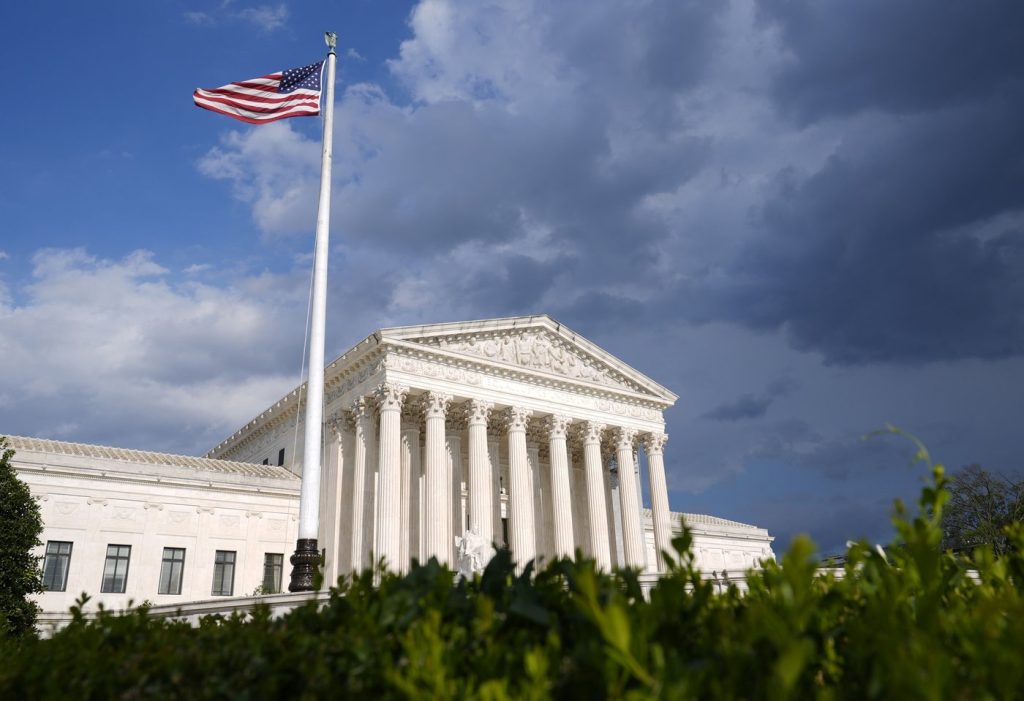On Tuesday, the Supreme Court will hear arguments related to LGBTQ+ rights, specifically focusing on the constitutionality of conversion therapy bans for minors that have been enacted in nearly half of U.S. states. This case stems from a lawsuit filed by Kaley Chiles, a Christian counselor challenging a Colorado law that prohibits therapy aimed at altering an individual’s sexual orientation or gender identity. Chiles argues that the law infringes on her First Amendment rights by preventing her from offering voluntary, faith-based therapy to minors.
The state of Colorado defends the law, asserting that it is a necessary regulation aimed at protecting children from a practice that has been scientifically discredited and linked to detrimental psychological effects. Colorado maintains that the law does not criminalize faith-based discussions between therapists and young clients regarding gender and sexuality; rather, it specifically prohibits therapies intended to change a minor’s sexual orientation or gender identity, which are considered unsafe and ineffective.
This legal debate occurs in the wake of a recent Supreme Court ruling that allowed states to prohibit transition-related health care for transgender youths, reflecting a broader trend of setbacks for LGBTQ rights. The Court is also set to consider additional cases regarding the participation of transgender athletes in sports during the current term.
Under the 2019 law, Colorado has not sanctioned any therapists, emphasizing that it permits counselors to engage in extensive, faith-based dialogues with young patients. State attorneys argue that therapy is a form of health care that requires government regulation and that violating the law could result in significant penalties, including fines of up to $5,000 and the potential suspension or revocation of a therapist's license.
The emotional and psychological impact of conversion therapy is illustrated by Linda Robertson, a Christian mother from Washington State. Her son, Ryan, underwent conversion therapy at the age of 12, and she recounts the devastating effects it had on him, eventually leading to his death in 2009 after struggles with depression and multiple suicide attempts. Robertson asserts that the therapy shattered her son’s confidence and his sense of acceptance within both his family and faith.
Chiles argues that her methods differ significantly from historically associated practices like aversion therapy, and she believes that individuals thrive when aligned with what she interprets as God's design. Her position is that Colorado is engaging in discrimination by permitting affirmation counseling for minors identifying as LGBTQ+ while prohibiting counseling for those who wish to explore changing their sexual orientation or gender identity.
Legal representation for Chiles comes from Alliance Defending Freedom, a conservative legal group that has frequently appeared before the Supreme Court. The organization also successfully represented a Christian business owner in a case against Colorado’s anti-discrimination law earlier this year and builds its argument on the foundation of prior Supreme Court decisions that emphasize free speech and religious freedoms.
While Chiles’ legal team highlights First Amendment concerns regarding Colorado's law, the state argues that regulations that incidentally burden speech can still be permissible. They contend that overturning the conversion therapy ban would hinder state capabilities to regulate harmful health care practices for minors.
The Supreme Court decided to accept this case following a split decision from the 10th U.S. Circuit Court of Appeals, which upheld the Colorado law, while another appeal in the 11th Circuit Court struck down similar bans in Florida. Legal challenges to conversion therapy laws are ongoing, with recent developments in other states such as Wisconsin, where the state’s highest court upheld its ban, and Virginia, where officials have agreed to limit enforcement following a lawsuit.
As the Supreme Court prepares for oral arguments, the outcomes of these legal battles will have significant implications for LGBTQ+ rights and the regulation of therapy practices across the United States.











